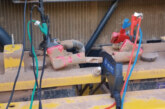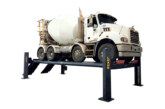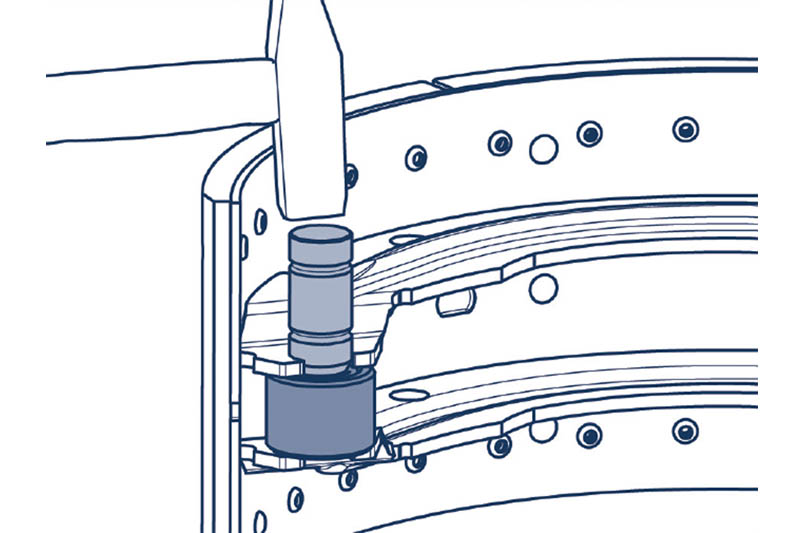
Low servicing costs mean drum brakes are a popular choice on trailers; BPW offers some hints on assessing wear on both drums and linings.
BPW’s S-cam brakes offer consistently high braking action over the entire service life of the brake lining, with low operating and spare part costs. The closed design of the drum and shoe assembly resists dirt contamination even for off-road operations. However, brake linings and drums are wearing parts so regular inspections for wear are essential to ensure braking efficiency is maintained.
Brake lining wear
BPW brake linings project laterally over the edge of the brake drum and thin wear edges are formed. The amount of wear on the brake linings can be assessed by means of the inspection holes in the dust covers.
Genuine BPW brake linings have wear indicator pockets machined into the sides; this is to enable the remaining lining thickness to be observed through the inspection holes in the backplates. Without this feature, it would be necessary to remove the hub and drum to physically measure the remaining brake lining thickness.
Brake linings must be renewed once the residual lining thickness coincides with the lower edge of the wear indicator. On BPW S-cam brakes, this occurs when the lining thickness reaches 5mm (SN420 and SN360 brakes), 7mm (SN300 brakes), or when the bottom of the indicator machined into the edge of the lining is reached.
Wear indicator
The auto-slack adjuster fitted on the BPW drum braked axles has a wear indicator so the amount of wear on brake linings can be easily detected. The minimum thickness of the brake linings is indicated by the position of the lever when the brake is released.
When new brake linings are fitted, the plastic wear indicator lever should be positioned vertically or in alignment with the slack adjuster lever. When the indicator has rotated 90° from its starting position, the brake linings will have reached their wear limit and must be renewed.
On trailers where the slack adjusters are not fitted in the normal vertical orientation, the position of the wear indicator will be different. In these cases, linings should be changed when the wear indicator is approximately at right angles to the brake lever.
Brake drum wear
Wear on the brake drum can be checked by removing the dust cover. If the wear edge has almost been reached or it can no longer be clearly seen, the hub/drum assembly should be withdrawn and the brake drum replaced.
A feature of the brake drum is that the hub and drum assembly can be removed without the need to de-adjust the running clearance of the brake at the slack adjuster. This is possible because the inner edge of the brake lining lies just outside of the running surface of the drum and into the wear indicator rebate on the inner edge of the brake drum.
If the wear indicators on the individual brakes differ considerably, the amount of wear must be checked via the inspection holes in the dust cover.
Brake linings checklist
Visually inspect all component parts for damage and wear. Replace the internal brake return springs at every brake re-line.
New brake shoes remove the possibility of newer trailers being fitted with older, worn and damaged brake platforms which can often result in the incidence of brake noise, vibration, and premature lining degradation. All new BPW brake shoes are supplied complete with rollers, removing the problem of seized or damaged rollers caused by shot blasting. This damage can affect the braking performance and cause impact wear on the camshaft.
The “C’ clips on the brake anchors should be replaced at every second or third re-line or when they have lost their elasticity, whichever comes first.
When the brake linings have been replaced and the hub and drum are refitted, a feature of the BPW Eco and Eco Plus hub securing nut/bolt ensures that the correct amount of bearing pre-load is applied automatically.
Every three months:
- Check that brake lining thickness will not reach the minimum before the next service
- Check the brake drum for cracks
- Check the drum internal diameter
- Check operation of automatic slack adjuster
- Lubricate with BPW Eco Li Plus grease (every six to eight weeks is recommended)
Every six months:
- Check operation of automatic slack adjusters
Setting the lining drum clearance
This is an important step in maintenance procedures. Too little clearance can cause excess thermal stress damaging to both linings and drum, and even wheels and tyres. Too much clearance and there will be insufficient braking power.
- Set the freeplay by disengaging the clutch on the slack adjuster and turning the adjuster clockwise using a 19mm socket until brake bind is achieved.
- Then turn 180° anti-clockwise. This gives a lining-to-drum clearance of 0.7mm to 1mm.
- If new linings have been fitted, then position the braking lining indicator in the vertical position and tighten the camshaft nut to 60-70 Nm.
Automatic slack adjusters
While the automatic slack adjuster should take care of excessive clearance, it must be periodically checked.
- Turn back adjustment bolt . turn anticlockwise. A play of at least 50mm with a lever length of 150mm must be available.
- Actuate the brake lever several times by hand. This will automatically adjust the brake. There is an audible noise when the clutch coupling engages and the adjustment screw turns slightly in a clockwise direction.
Brake drum wear checks
- Check condition of drum every quarter
- Renew drum when the wear edge at the side of the drum is no longer visible
Brake roller servicing
- Check rollers for wear and replace as necessary. Roller and pin kits are available
- Remove roller pin by driving through the snap rings with a suitable drift
- Clean pin and bushes and re-lubricate with a high melting point grease
- Reposition the roller and snap rings and drive pin into position
- Ensure that the roller rotates freely


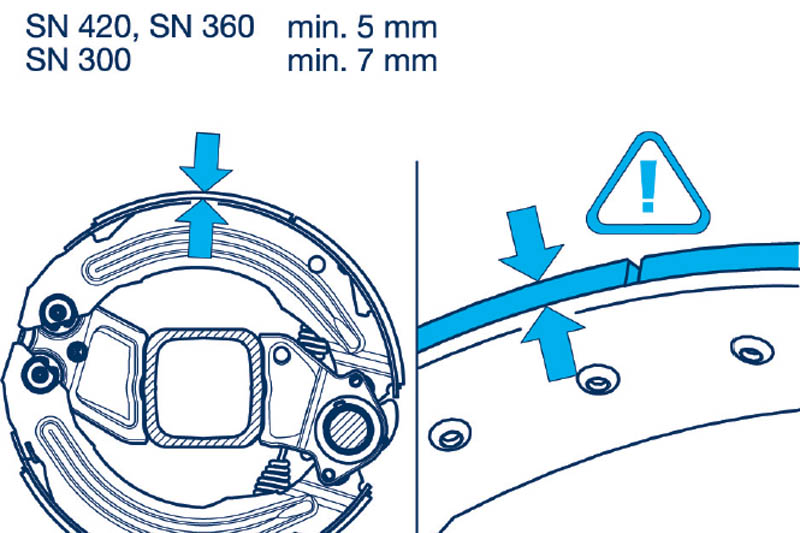
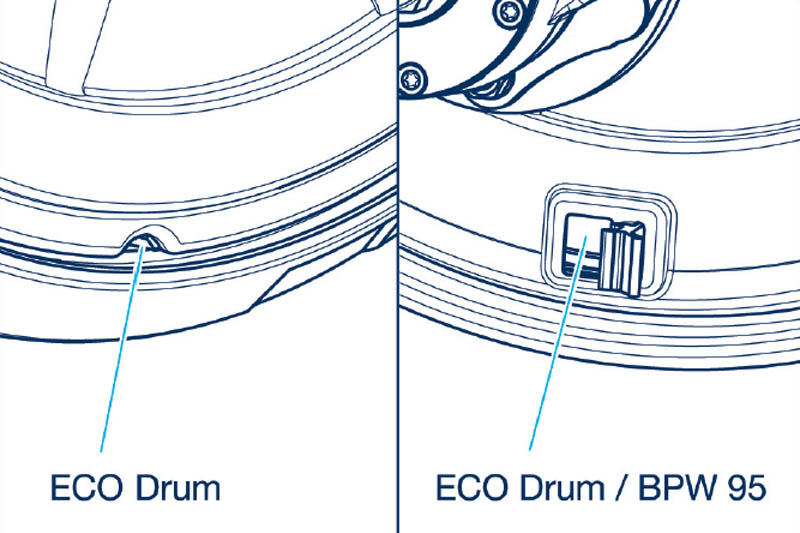
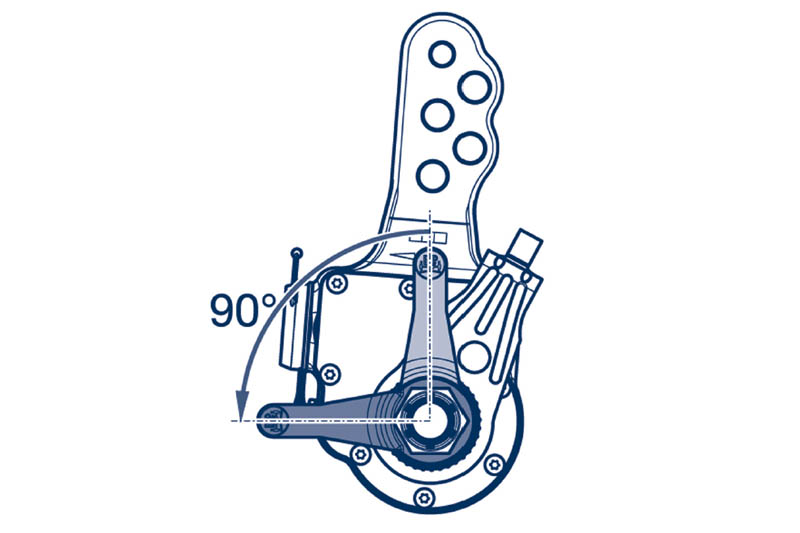
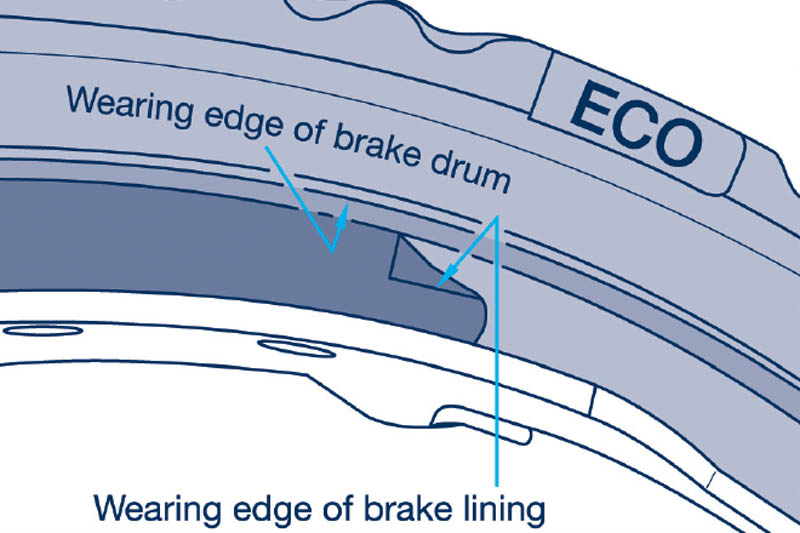
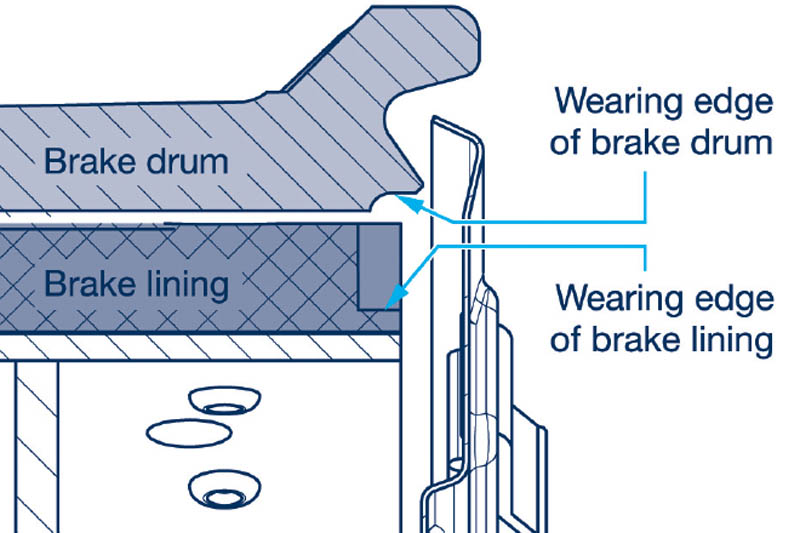
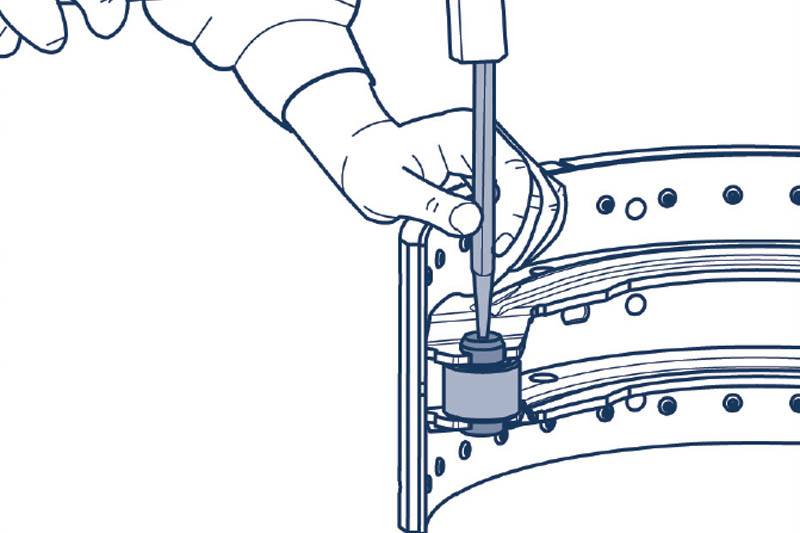
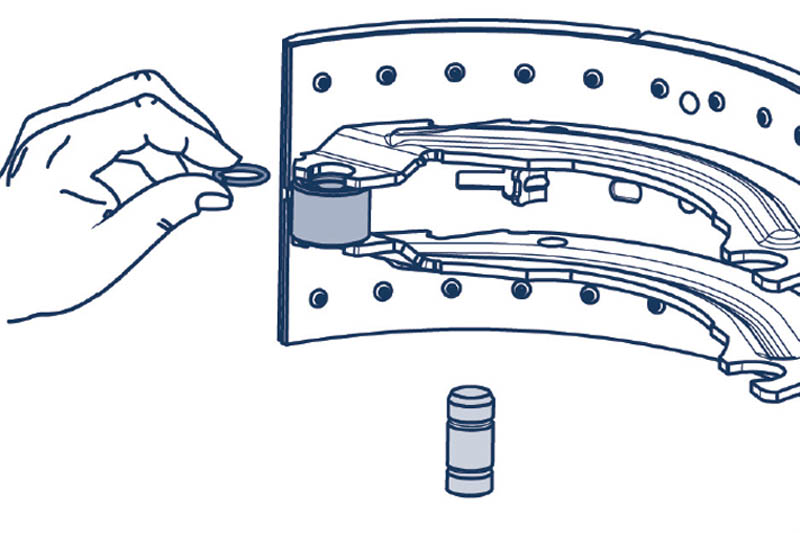
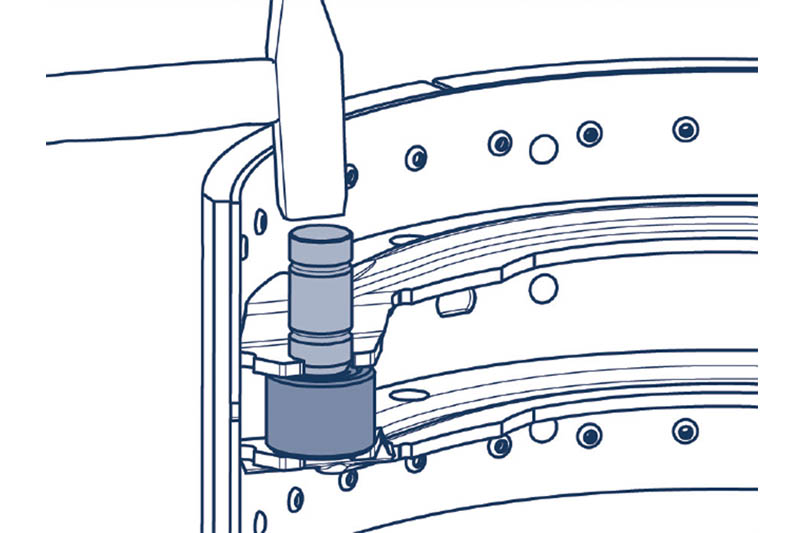




![Bosch outlines ESI[tronic] workshop software](https://cvwmagazine.co.uk/wp-content/uploads/2025/07/Bosch-ESItronic-25-165x109.jpg)
